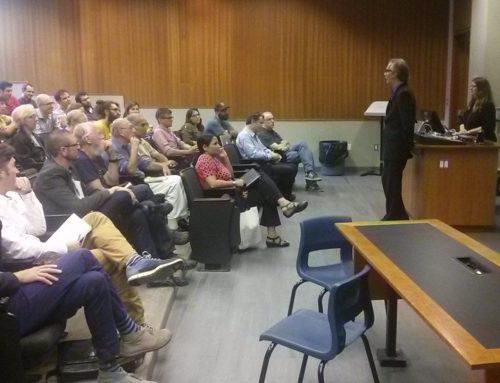Brent Sinclair (University of Western Ontario) Title: Plasticity, Variability, Thresholds and Evolution: Why It’s So Hard to Model the Response of the ‘Average’ Insect to Climate Change
Models of biological systems and their responses to climate change necessarily make assumptions about the biology of the organisms whose behaviour they seek to predict. In many cases, these assumptions are justified, and the model remains robust. However, almost all of these models assume that the organism’s response to the environment remains more- or-less static over time, and that animals’ responses to climate are readily predicted. I will draw on my work on the overwintering biology of insects to illustrate the dynamic and non-linear nature of animals’ responses to the environment on short and long time scales with a view to examining the assumptions inherent in predictions of the effect of climate change on insects and other ectothermic animals. I will first provide a basic introduction to insect overwintering biology, focusing on metabolism and cold tolerance, and briefly discuss the importance and complexity of microhabitat and microclimate in determining the environments that insects experience. Second, I will provide an overview of the relationship between temperature and biological processes in insects, showing how curvilinear and threshold relationships can drastically modify the interpretation of insect overwintering biology. Third, I will examine several key components of phenotypic plasticity in insect overwintering, showing how dynamic physiological responses to the environment can nullify or exacerbate predicted impacts of thermal extremes and variability. Finally, I will discuss insects’ evolutionary responses to climate variation, and the extent to which understanding these responses can inform predictive models of responses to climate change. In the context of models, I will distill the insect case to identify a few places where model parameters or outputs can be tweaked to improve realism, and other areas where generalities will remain, for the present, uncertain.






